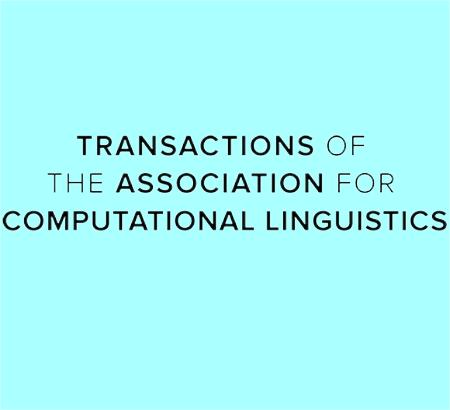众包隐含话语关系的设计选择:揭示任务设计引入的偏见
IF 4.2
1区 计算机科学
Q2 COMPUTER SCIENCE, ARTIFICIAL INTELLIGENCE
Transactions of the Association for Computational Linguistics
Pub Date : 2023-04-03
DOI:10.1162/tacl_a_00586
引用次数: 1
摘要
摘要对自然语言标注中的歧义问题的研究大多是从标注者和标注框架引入的偏差角度出发的。在这里,我们建议分析另一种偏见来源-任务设计偏见,它对使用自然语言来引出外行注释者解释的众包语言注释有特别强烈的影响。为此,我们来看看隐式话语关系注释,由于关系的模糊性,这项任务一再被证明是困难的。我们比较了使用两种不同注释任务获得的1200个话语关系的注释,并量化了这两种方法在四个不同领域的偏差。这两种方法都是为众包设计的自然语言注释任务。我们的研究表明,任务设计可以将注释者推向特定的关系,并且使用一种或另一种注释方法可以更好地引出某些话语关系感官。我们还得出结论,在训练和测试模型时应考虑到这种类型的偏差。本文章由计算机程序翻译,如有差异,请以英文原文为准。
Design Choices for Crowdsourcing Implicit Discourse Relations: Revealing the Biases Introduced by Task Design
Abstract Disagreement in natural language annotation has mostly been studied from a perspective of biases introduced by the annotators and the annotation frameworks. Here, we propose to analyze another source of bias—task design bias, which has a particularly strong impact on crowdsourced linguistic annotations where natural language is used to elicit the interpretation of lay annotators. For this purpose we look at implicit discourse relation annotation, a task that has repeatedly been shown to be difficult due to the relations’ ambiguity. We compare the annotations of 1,200 discourse relations obtained using two distinct annotation tasks and quantify the biases of both methods across four different domains. Both methods are natural language annotation tasks designed for crowdsourcing. We show that the task design can push annotators towards certain relations and that some discourse relation senses can be better elicited with one or the other annotation approach. We also conclude that this type of bias should be taken into account when training and testing models.
求助全文
通过发布文献求助,成功后即可免费获取论文全文。
去求助
来源期刊
CiteScore
32.60
自引率
4.60%
发文量
58
审稿时长
8 weeks
期刊介绍:
The highly regarded quarterly journal Computational Linguistics has a companion journal called Transactions of the Association for Computational Linguistics. This open access journal publishes articles in all areas of natural language processing and is an important resource for academic and industry computational linguists, natural language processing experts, artificial intelligence and machine learning investigators, cognitive scientists, speech specialists, as well as linguists and philosophers. The journal disseminates work of vital relevance to these professionals on an annual basis.

 求助内容:
求助内容: 应助结果提醒方式:
应助结果提醒方式:


